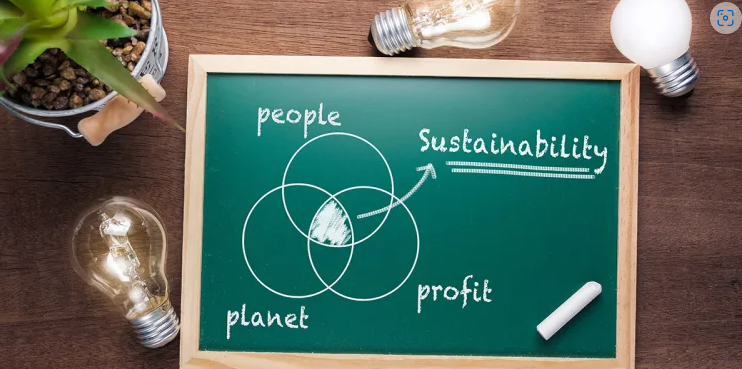How Sustainability Helps Your Bottom Line
4/9/20253 min read


Everyone’s talking about it, but what does it really mean?
Corporate sustainability basically refers to the impact of a company’s practices in environmental, social, and economic terms. It’s now usual for an organization to have some form of sustainability program or policy in place, and many industry players are even certified by third parties (e.g. B-Corp, Fairtrade). But why do it? What’s in it for you?
The first benefit, which every businessperson will care about, is cost savings.
A few obvious examples come to mind. Waste heat can be redirected and reused, thereby saving on energy costs. In a nuclear power plant, cooling water and wastewater can also be reused for non-potable purposes. Virgin materials may cost more than recycled inputs. With rising energy prices, cost savings could be found in energy efficiency upgrades and behaviours. It all depends on your industry and your business model. A good sustainability advisor, adopting a systems-thinking approach in their assessment, should be able to dive deeply into the life cycle of your product or service and propose gaps or solutions which will not only help your bottom line but also deliver positive environment or social change.
Another benefit is staying on the good side of the law – and public health.
Looking at risks in your supply and production chain from a holistic sustainability perspective could, for instance, identify potential areas for worry. That’s why GORE-TEX phased out forever chemicals (officially, Perfluoroalkyl and Polyfluoroalkyl Substances) from their products (Ethical Consumer 2024), and why Nalgene was hit hard for its use of BPA (bisphenol A) in its manufacturing process (PBS News 2008). We’re all aware of the presence of microplastics and microfibers in our oceans. With a sound sustainability program, your organization can not only avoid inadvertent harm to others, stay out of trouble, while further helping to improve our physical and natural environments.
A third benefit is the strengthening of relationships with your employees, customers, and investors.
Sustainability has become something that many customers and consumers have come to expect, according to a 2023 study by McKinsey & Company. Employees, particularly younger and/or skilled workers, feel a greater sense of mission, purpose, and engagement with a company that is genuinely trying to make a positive impact (Chicago Booth Review 2024). It is now common for investors to prioritize sustainable projects, especially those which contribute to the UN Sustainable Development Goals (“SDGs”) – a 2022 study in the US showed that investors strongly prefer portfolios contributing to the SDGs, and may even be willing to forgo returns when investments contain SDGs or are provided by a sustainable bank (Harasheh, Bouteska, and Manita 2022). By publishing sustainability challenges and achievements in your annual report, or in a separate sustainability report, your company demonstrates commitment to long-term change and accountability to your stakeholders.
Curious to find out how incorporating sustainability into your business can deliver not only commercial but also environmental/social outcomes? Drop me a line or comment below.
About me: I’m a general counsel with 16 years of legal experience in disputes, commodities trading, and finance/M&A, now completing a 3-year Masters degree in global environment & sustainability from Birkbeck, University of London.
References:
Chicago Booth Review. (2024). ‘Skilled Workers Prefer Environmentally Conscious Companies’. 14 May 2024. https://www.chicagobooth.edu/review/skilled-workers-prefer-environmentally-conscious-companies
Ethical Consumer. (2024). ‘The problem of forever chemicals and waterproof clothing’. 16 April 2024. https://www.ethicalconsumer.org/fashion-clothing/problem-forever-chemicals-waterproof-clothing
Harasheh, M., Bouteska, A., and Manita, R. (2024). ‘Investors’ preferences for sustainable investments: Evidence from the U.S. using an experimental approach’. Economic Letters. Vol 234, Jan 2024, 111428. https://doi.org/10.1016/j.econlet.2023.111428
McKinsey & Company. (2023). ‘Consumers care about sustainability—and back it up with their wallets’. 6 February 2023. https://www.mckinsey.com/industries/consumer-packaged-goods/our-insights/consumers-care-about-sustainability-and-back-it-up-with-their-wallets
PBS News. (2008). ‘Wal-Mart, Nalgene Pull BPA Items After Report Sparks Concerns’. https://www.pbs.org/newshour/science/science-jan-june08-bpa_04-18
Image credit: Harvard Business School (https://online.hbs.edu/blog/post/what-is-the-triple-bottom-line)